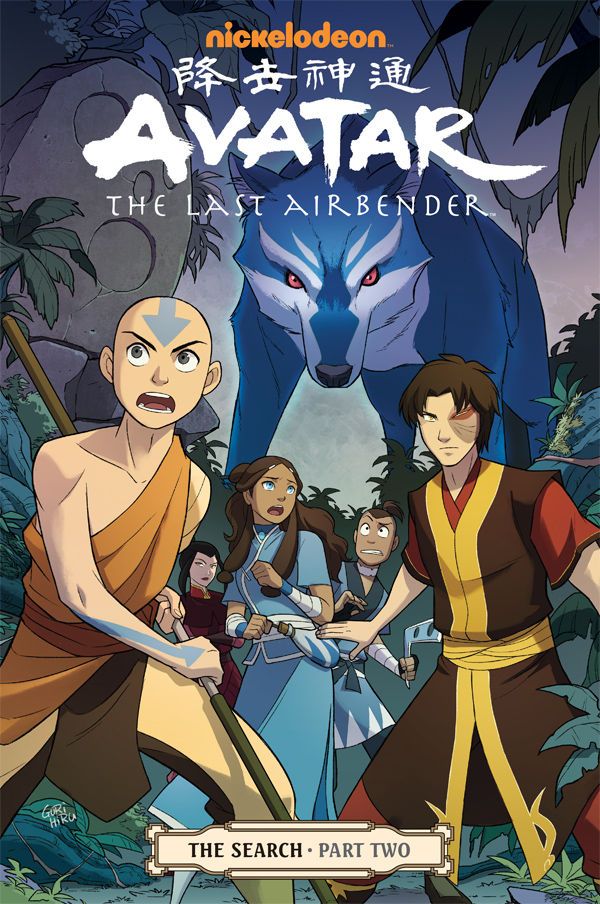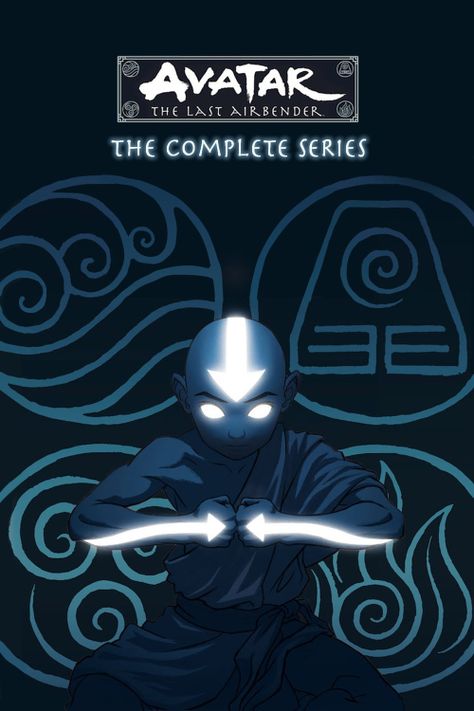
Avatar: The Last Airbender
General Info

| Genres | Animation, Action & Adventure, Sci-Fi & Fantasy |
|---|---|
| Tagline | Water. Earth. Fire. Air. |
| Edited By | Dao Le |
| Starring | Zach Tyler, Mae Whitman, Jack De Sena, Dante Basco, Jessie Flower, Greg Baldwin, Dee Bradley Baker, Grey DeLisle, Cricket Leigh, Olivia Hack, André Sogliuzzo |
| Languages | en |
| Directed By | Heiko von Drengenberg |
| Produced By | Bryan Konietzko, Michael Dante DiMartino, Aaron Ehasz |
| Release Date | 2005-02-21 |
| Running Time | 25 |
| TV Series Name | Avatar: The Last Airbender |
| Content Rating | 8.694 |
| Distributed By | Nickelodeon |
| Original Title | Avatar: The Last Airbender |
| Country of Origin | KR, US |
| Number of Seasons | 3 |
| Number of Episodes | 61 |
| World Premiere Date | 2005-02-21 |
| Production Company Name | Nickelodeon Animation Studio, JM Animation, DR Movie, Moi Animation |
| Production Company Website URL | http://www.nick.com/avatar-the-last-airbender/ |
Trailer
Overview
But Aang has suddenly been frozen for a century and wakes up to a world torn by war. The Fire Nation seeks to dominate the other three by taking advantage of the Avatar's absence. Accompanied by his new friends Katara and Sokka, Aang embarks on a perilous journey to understand and master his powers as he seeks to end the war.
The series excels at teaching spirituality, environmentalism, and responsibility, using each episode as a springboard for Aang's maturation and revealing the complexities of the world they navigate. Avatar: The Last Airbender packs a punch – it's joyful, heartbreaking and inspiring, with a perfect blend of fantasy, adventure and character arcs that make it more than just a children's TV show. Its deep-rooted themes resonate with everyone, making it an evergreen series that continues to captivate audiences around the world.
Plot
The story begins with the discovery of a 12-year-old boy, Aang, trapped in an iceberg by two brothers of the southern water tribe: the waterbender Katara and Sokka. Aang is not just any boy: he is the Avatar, an entity reincarnated over the centuries who can control all four elements and maintain harmony among nations. However, Aang mysteriously disappeared a hundred years ago, and in his absence the Fire Nation began a ruthless conquest to dominate the entire world. As the last surviving Airbender, Aang must now take on the daunting task of teaching the other three elements to bend and stop the Fire Nation's destructive path. Guided by his new friends Katara and Sokka and pursued by Zuko, the disgraced Fire Nation prince eager to regain his lost honor after hijacking the Avatar, Aang embarks on a perilous adventure. She struggles not only with external enemies, but also with internal fears and reluctance due to the huge responsibility that rests on her young shoulders.
Avatar: The Last Airbender combines this thrilling quest with stirring themes of friendship, resilience and self-fulfilment. As Aang and his companions travel across different landscapes and encounter different communities, they learn valuable lessons that test and ultimately strengthen their personal bonds and beliefs. In this exploration of courage, love and redemption, the series questions the destructive powers of war and the infinite potential of the human spirit and compassion.
Production
The series' signature animation style was dubbed "American Anime" because it seamlessly blended the comedy and playfulness of American cartoons with the darker, more dramatic narrative elements often seen in Japanese anime. This hybrid style was a challenging task that required a seamless collaboration between Emmy Award-winning American animation studio Nickelodeon Animation Studio and South Korean studios JM Animation, DR Movie and MOI Animation.
Also worth noting is the meticulous attention to authenticity of the martial arts elements of the series. Sifu Kisu of the Harmonious Fist Athletic Association of China provided the show's creators with a critical perspective on Northern Shaolin, a traditional Chinese martial arts style. Each "bending style" in the series corresponds to a specific martial arts style, keeping the moves rooted in reality while showcasing fantastic bending abilities.
The series' sound and music production, led by Jeremy Zuckerman and Benjamin Wynn (known as The Track Team), matched the show's visuals to an audio aesthetic of the same caliber. Drawing on influences from traditional Asian music to digital and industrial music, they enhanced the rich atmosphere of the Avatar universe.
A dedicated writing room, directors, voice actors and a huge production team also played a huge role in making Avatar: The Last Airbender a huge success. Together, they created one of the most beloved, complex and thought-provoking children's series that appealed to adults, making the production an exemplary display of amazing teamwork and execution.
Release
The story of The Last Airbender revolves around the journey of Aang, the last airbender alive, and the prophesied Avatar with the unique ability to control all four elements. His mission to maintain balance and world peace against the imperialist Fire Nation resulted in a compelling story of courage, empathy and friendship. The last episode "Sozin's Comet" was shown in 2008. July 19 He left a legacy that still resonates more than a decade later. Not only is it a widely praised masterpiece of storytelling and animation; it's a cultural gem that deftly tackles complex themes like war, duty, and redemption. Since then, the release of this series has laid the groundwork for many adaptations and sequels exploring the same universe.
Reception
Viewers were particularly impressed with the show's character development, particularly the antagonist Zuko, who undergoes a significant transformation during the run, culminating in a redemption arc that is considered one of the best in television history.
Critics praised the series for its consistent quality. Not only did it kick off the three-season story nicely, but it also struck a balance between deep, emotional storylines and resonant humor. This perfect blend of drama and humor was a key element of her appeal.
His influence has transcended the screen, inspiring countless fan art, cosplayers, and elaborate theories. Avatar: The Last Airbender has since been debated as the greatest animated series of all time, securing its place on the stage of television history.
Cultural impact
Avatar: The Last Airbender has helped create a unique niche in global popular culture. This beautifully crafted animated series transcends age and geographic boundaries and has garnered fans who appreciate rich fantasy elements and a beautifully crafted narrative.
Perhaps the biggest cultural impact is the shameless mix of various Asian cultural references. Impeccably exploring elements of East Asian, Inuit, South Asian and New World societies, she opened up a fascinating horizon of multicultural discourse, encouraging her viewers to appreciate and respect cultural diversity. The positive portrayal of Buddhism and Hinduism introduced young audiences to these philosophies through Aang's spiritual journey.
In addition, the series used its platform to address issues such as imperialism, genocide, totalitarianism, and free will. The apparent lack of black-and-white moralizing and complex characters that run the gamut of morality have led to such thought-provoking conversations.
- The influence of the series can also be felt in a wave of animated shows using serialized storytelling, moving away from the convention of individual episodes. Its success proved that animation can be a powerful tool for mature and thoughtful storytelling.
- Avatar's compelling and nuanced female characters made a mark in strengthening the representation of women in animation. This contributed to a wider discourse of gender equality in the media.
That's why Avatar: The Last Airbender, with its rich narrative and groundbreaking cultural representations, continues to have a profound impact on shaping the landscape of animated television.
